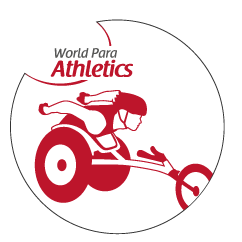Canadian wheelchair racer suspended for five years for anti-doping rule violation
17.03.2014Jean-Paul Compaore tested positive for eEPO at IPC Athletics World Championships in Lyon, France.
 Analysts Myriam Kabu (L) and Damon Maheux work in the anti-doping laboratory which tested athlete’s samples from the London 2012 Games
© • Getty Images
Analysts Myriam Kabu (L) and Damon Maheux work in the anti-doping laboratory which tested athlete’s samples from the London 2012 Games
© • Getty Images
The International Paralympic Committee (IPC) has announced that Canadian T54 wheelchair racer Jean-Paul Compaore has been suspended for five years and fined EUR 1,500 for a second Anti-Doping Rule violation in three years.
Compaore returned an adverse analytical finding for recombinant Erythropoietin (rEPO) in a urine sample provided on 20 July 2013 after he had competed at the IPC Athletics World Championships in Lyon, France. This substance is classified under S2. Peptide Hormones, Growth Factors and Related Substances on the World Anti-Doping Agency (WADA) 2013 Prohibited List and is prohibited both in and out of competition.
This was Jean-Paul Compaore’s second violation having served a reduced two month sanction issued by his National Anti-Doping Agency in 2011 following an Anti-Doping Rule violation for Hydrochlororothiazide, a substance listed as category S5. Diuretic and Other Masking Agents on the Prohibited List 2011.
Therefore, in accordance with the IPC Anti-Doping Code, he will serve a five year suspension for the offence beginning on 16 August 2013; the date from which he was notified of the offence.
All results obtained from 20 July 2013, the date of the test and onwards, will be disqualified with all the resulting consequences including forfeiture of any medals, points, records and prizes.
This includes the World Championship bronze medal he won in the 10,000m on 20 July. Fellow Canadian Josh Cassidy who finished fourth in the race will now be awarded the medal.
The principle of strict liability applies to anti-doping matters. Therefore, each athlete is strictly liable for the substances found in his or her sample, and that an anti-doping rule violation occurs whenever a prohibited substance (or its metabolites or markers) is found in his or her bodily specimen, whether or not the athlete intentionally or unintentionally used a prohibited substance or was negligent or otherwise at fault.
As a signatory of the World Anti-Doping Code (WADC), the IPC remains committed to a doping free sporting environment at all levels. The IPC, together with the International Federations and the National Paralympic Committees, established the IPC Anti-Doping Code to prevent doping in sport for Paralympic athletes, in the spirit of fair play. The IPC Anti-Doping Code is in conformity with the general principles of the WADC.





















